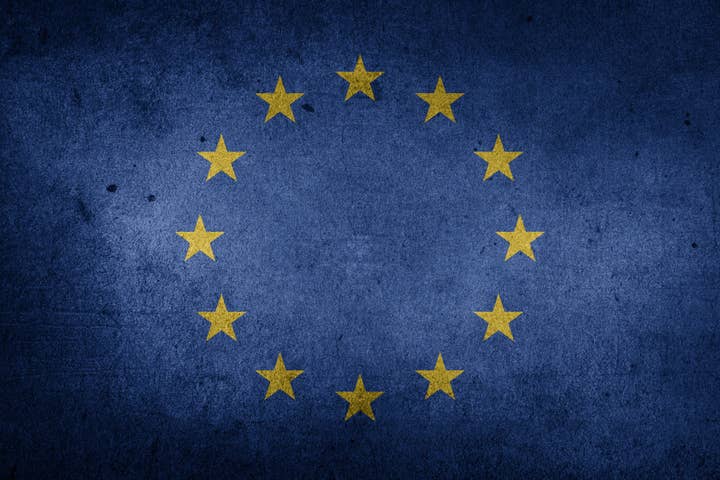Apple, Google under pressure as EU approves Digital Markets Act
New legislation due to come into force this autumn, expected to loosen platform holders' control over iOS and Google Play
The European Union has approved two new pieces of legislation that are due to shake up how online services and platforms operate in the region, with Apple and Google expected to be among those greatly affected.
The European Parliament has now adopted by the Digital Services Act and the Digital Markets Act, which combined are described as the "first comprehensive rulebook for the online platforms that we all depend on in our lives."
Both will be applicable across the whole of the EU, including for companies not based in the region.
Originally proposed back in December 2020, the acts will now be formally adopted by the Council of the European Union and then published in the Official Journal. They will enter into force 20 days after their publication, estimated to be some time during autumn 2022.
The legislation is far-reaching and affects everything from hosting and intermediary services, such as internet access providers, to online marketplaces and "very large online platforms."
In the EU's announcement, Margerethe Vestager -- executive vice president for a Europe Fit for the Digital Age -- said: "Big platforms will have to refrain from promoting their own interests, share their data with other businesses, enable more app stores. Because with size comes responsibility -- as a big platform, there are things you must do and things you cannot do."
Thierry Breton, commissioner for the internal market added: "Ten years ago, a page was turned on 'too big to fail' banks. Now, with DSA and DMA, we're turning the page on 'too big to care' platforms."
How does this affect the games industry?
The full impact on video games companies is yet to be determined, but of particular note is the expected effect on Apple and Google, which have both been defending their mobile ecosystems from a variety of antitrust lawsuits and investigations over the past few years.
"Ten years ago, a page was turned on 'too big to fail' banks. Now, with DSA and DMA, we're turning the page on 'too big to care' platforms"
Thierry Breton, European Commission
As covered earlier this year, the Digital Markets Act will, among other things, force platform holders to allow users to sideload apps and install software via means other than the official stores.
It will also prevent platform holders like Apple and Google from blocking payments via third-party systems in order to ensure they receive their commission on all transactions, which is typically 30%.
Both rules address some of the issues raised by Epic Games in its many lawsuits against Apple and Google. The Fortnite developer was largely defeated in is US court case of 2020; it's lone victory -- the ruling that Apple must drop its anti-steering practices -- has been halted while the iOS firm continues to appeal against the decision.
The Digital Markets Act explained
The DMA is a set of rules and regulations specifically targeted at large online platforms the EU considers to be a 'gatekeeper.'
A gatekeeper is any company that:
- has a "strong economic position" and "significant impact" on the EU's internal market
- has a "strong intermediation position," which means it links a large number of businesses with a large audience
- has or will have an "entrenched and durable position in the market," meaning that it meets the above two criteria for three consecutive financial years
Once the DMA is in force, the European Commission will assess which companies qualify as gatekeepers, a process that will involve companies submitting information on whether or not they meet the criteria.

If a company is designated as a gatekeeper, it will have six months to comply with the new rules.
Non-compliance can result in fines of up to 10% of the firm's worldwide annual turnover, rising to 20% for repeated infringements and penalty payments of up to 5% of the company's worldwide daily turnover.
Among the 'dos and don'ts' for gatekeepers, perhaps the most relevant to the games industry -- and especially firms like Apple and Google -- are:
- They must allow users to install third party apps or app stores that use or interoperate with the gatekeeper's operating system
- They must allow users to easily uninstall pre-installed apps or change default settings on operating systems, virtual assistants and web browsers that steer them to the gatekeeper's own products and services
- They must allow businesses that use the gatekeeper's platform to promote external offers and conclude contracts with customers outside the platform
- They must not require app developers to use certain services the gatekeeper provides, such as payment systems, in order to have their software appear in the gatekeeper's app store
- They must not use any data for business users that compete with them or their own platform
On its website, the European Union said the DMA "aims at preventing gatekeepers from imposing unfair conditions on businesses and end users and at ensuring the openness of important digital services."
The Digital Services Act explained
The DSA has a far wider remit given that it tackles all companies from internet access providers and domain name registrars to very large online platforms (classified as those that have "a significant societal and economic impact" and at least 45 million users in the EU).
Businesses affected will include online marketplaces, app stores and social media platforms.
The new rules are focused on protecting users from illegal content, improving reporting processes and granting users new and expanded rights when it comes to complaints.
It also bans certain types of targeted advertising on online platforms; for example, targeting children or using special categories of personal data -- such as ethnicity, sexual orientation, or political views -- to reach certain audiences.
The Digital Services Act has been designed in full compliance with existing rules, such as GDPR and the ePrivacy Directive, to protect personal data.
Companies and platforms affected by the DSA that do not comply will face penalties, including financial fines, and in the most serious cases will be fined up to 6% of their global turnover.

